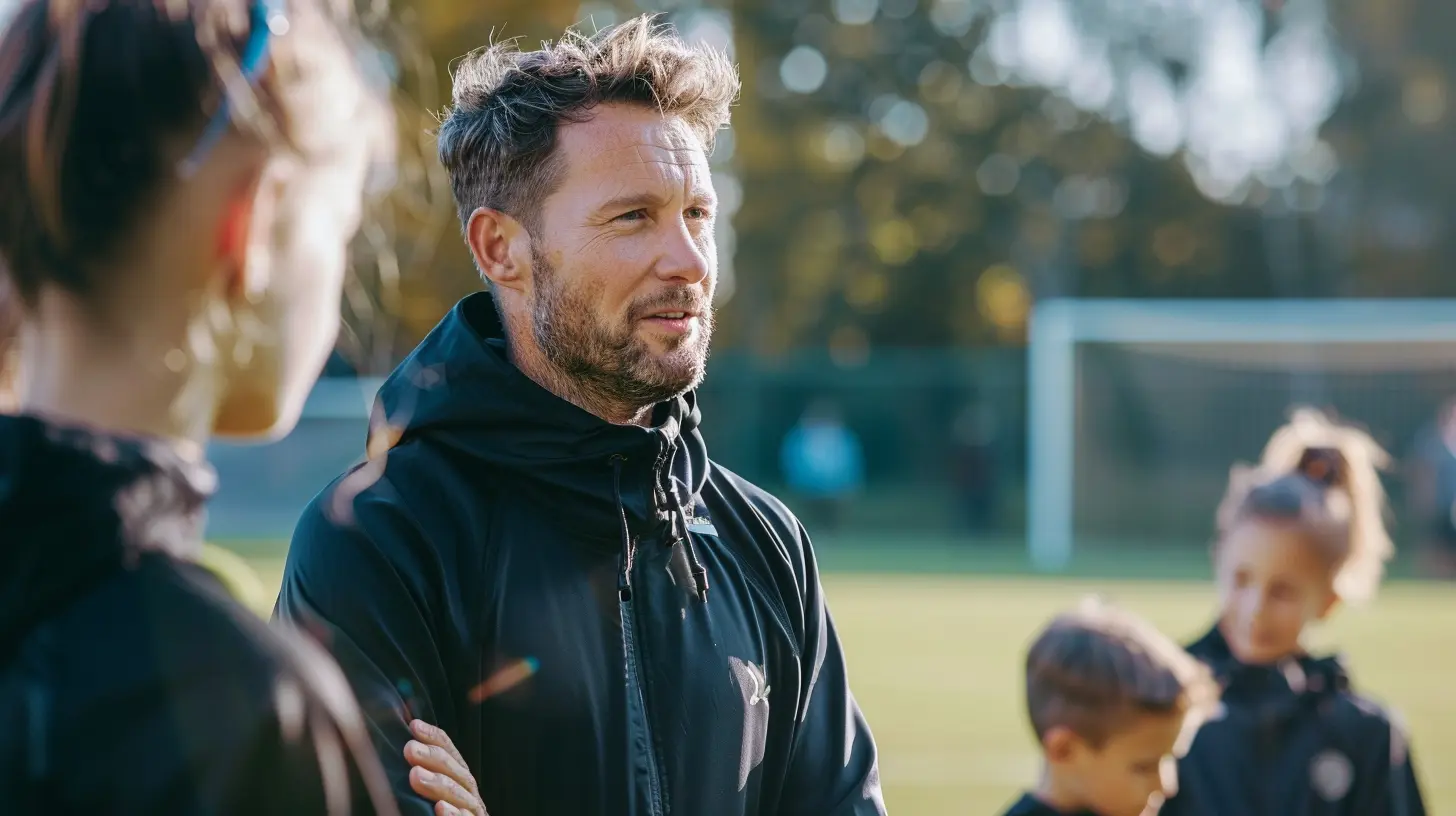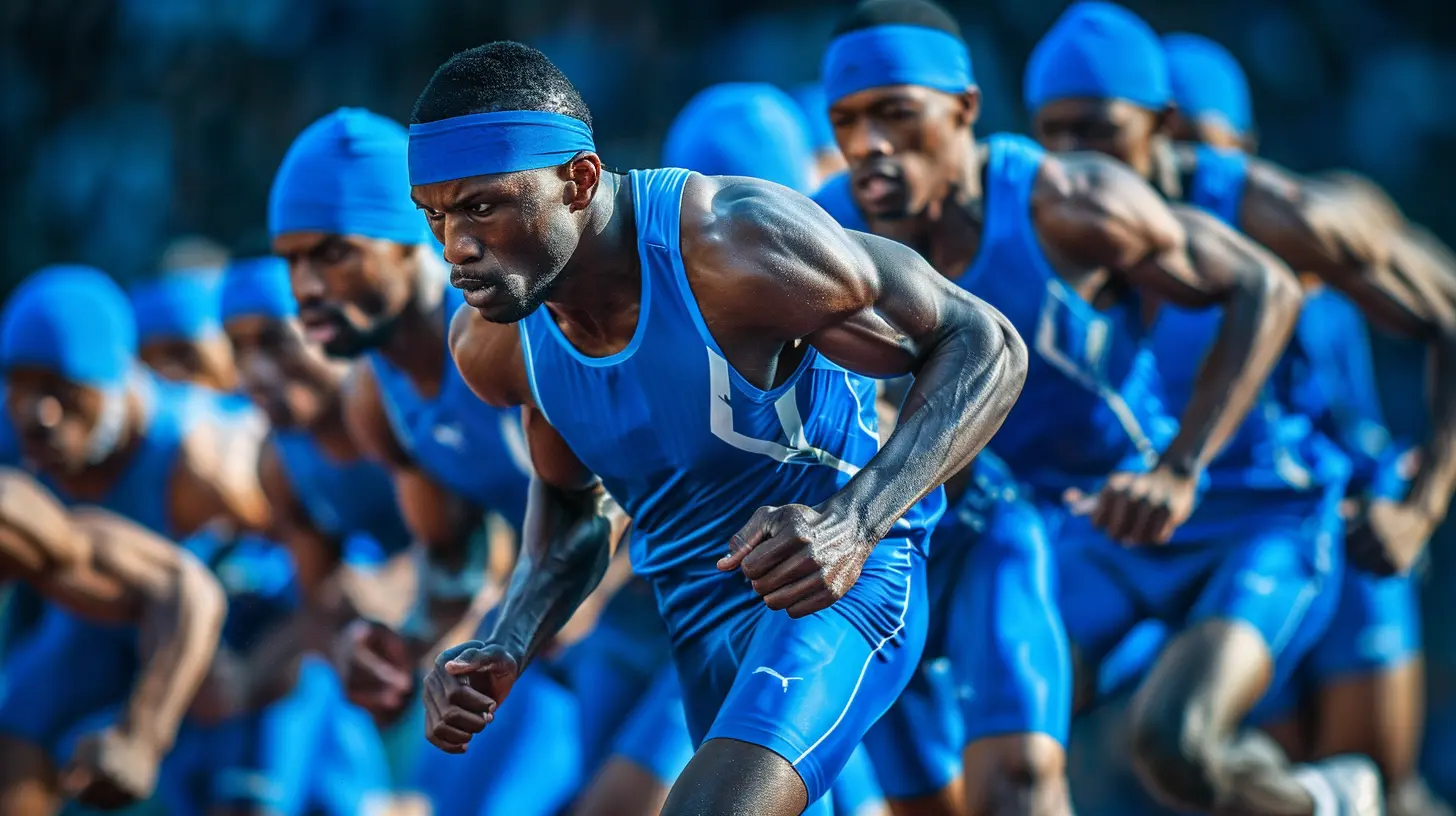18 January 2025
Coaching has evolved tremendously over the last few years. Gone are the days where shouting from the sidelines and running endless drills was considered the only way to mold athletes into champions. Now, innovative coaching techniques are transforming the way athletes train, develop, and succeed.
In a world where sports performance is constantly improving, coaches need to stay ahead of the curve. They must push the boundaries of traditional training methods and ensure that athletes are prepared not just physically, but mentally and emotionally as well. But what exactly are these groundbreaking techniques? And how are they shaping the future of sports?
Let's dive into the world of innovative coaching and explore how these methods are revolutionizing athlete development.

The Shift from Old-School to New-School Coaching
Not too long ago, coaching was pretty straightforward. Coaches focused heavily on physical conditioning, repetitive drills, and winning at all costs. You’d see athletes running laps, lifting weights, and practicing the same plays over and over again to "perfect" their craft. However, this one-dimensional approach often neglected the mental, emotional, and tactical aspects of the game.The modern landscape of coaching, however, has expanded far beyond these traditional methods. Coaches now understand that success isn’t just about how fast you can run or how hard you can hit. It’s about the whole person—mind, body, and spirit. It’s about being adaptable, understanding the nuances of the game, and fostering an environment where athletes can thrive both on and off the field.
But what exactly makes today’s coaching techniques so innovative? Let's take a look at some of the game-changers.

1. Data-Driven Coaching
In today's world, data is king, and it's no different in the world of sports. Coaches are now using data analytics to craft personalized training programs for their athletes. Gone are the days of "one-size-fits-all" training regimens. With the help of wearable technology, GPS trackers, and performance software, coaches can gather a wealth of information about an athlete's performance in real time.From heart rate and muscle strain to sprint speed and recovery times, every detail is measured, analyzed, and used to tailor training programs that suit the athlete’s unique needs. This allows for more targeted improvement, reduces the risk of injury, and ensures that athletes are always performing at their optimal level.
Think about it like this: It’s like a chef tailoring a meal to your specific taste buds rather than offering you the same dish as everyone else. The result? A more enjoyable experience and better outcomes.
How This Works
Coaches use data to:- Identify weaknesses and strengths.
- Track progress over time.
- Pinpoint the exact moment an athlete begins to fatigue.
- Adjust training loads to prevent overtraining or undertraining.
For example, a soccer coach might use GPS tracking to monitor how far each player runs during a match, allowing them to adjust training sessions to improve endurance or sprint speed depending on the player's position.

2. Mental Conditioning and Visualization Techniques
Ever hear the phrase, "Sports are 90% mental and 10% physical"? Well, it turns out, that might not be far off. Modern coaches are increasingly focusing on the mental side of the game, understanding that an athlete's mindset can be the difference between winning and losing.Mental conditioning techniques like visualization, meditation, and breathing exercises are becoming staples in many training programs. These techniques help athletes stay calm under pressure, sharpen their focus, and improve their overall mental toughness.
Visualization, for instance, is the practice of mentally rehearsing a performance before it happens. Athletes imagine themselves succeeding in specific situations, whether it’s sinking a game-winning shot or nailing a perfect routine. By doing this, they essentially "practice" without having to physically exert themselves.
Why It Matters
The mind is a powerful tool. When athletes can control their thoughts and emotions, they can perform at their best in high-pressure situations. Imagine a tennis player who’s about to serve at match point. If their mind is racing with negative thoughts or doubts, it could throw them off their game. But if they’ve practiced visualization and mental conditioning, they're more likely to stay calm and focused, increasing their chances of success.
3. Holistic Athlete Development
It's not just about what happens on the field. Today’s coaches are taking a holistic approach to athlete development, focusing on the entire person rather than just their athletic abilities. This includes everything from nutrition and sleep to mental well-being and work-life balance.Athletes are no longer seen as just players; they’re human beings with complex lives, emotions, and needs. Coaches are now working with nutritionists, psychologists, and even life coaches to ensure their athletes are thriving in all aspects of their lives.
The Bigger Picture
A well-rounded athlete is a more successful athlete. When players are supported both physically and mentally, they’re more likely to stay motivated, avoid burnout, and perform at a higher level. It’s like planting a tree: If you only water the leaves, the tree won’t thrive. But if you nourish the roots, the whole tree grows stronger and healthier.4. Emphasizing Rest and Recovery
In the past, the idea was that the harder you trained, the better you’d perform. But modern coaching techniques have flipped that notion on its head. Today, rest and recovery are seen as just as important—if not more—than training itself.Why? Because pushing too hard without adequate recovery can lead to injuries, burnout, and decreased performance. Modern coaches now understand that rest is when the body repairs itself and grows stronger. In fact, many elite athletes incorporate tools like massage therapy, cryotherapy, and even sleep tracking into their recovery routines to maximize performance.
Active Recovery
Coaches are also using “active recovery” techniques to help athletes recover while still staying engaged. This might include light swimming, yoga, or low-intensity mobility work on days off. These activities help the body recover without completely taking a break from movement.5. Individualized Coaching
Another major shift in the coaching world is the emphasis on individualized training. Coaches are no longer treating their athletes as a collective group. Instead, they're tailoring their approach to meet the needs of each individual athlete, understanding that everyone responds differently to training methods.Some athletes may need more mental coaching, while others may need to focus more on technical skills. By paying attention to the unique needs of each athlete, coaches can maximize their players' potential and ensure they’re getting exactly what they need to succeed.
An Example
Imagine a basketball team where one player excels at shooting but struggles with ball-handling, while another player is a defensive powerhouse but lacks offensive finesse. Instead of giving both players the same drills, a coach employing individualized coaching techniques would create custom drills that target each player's weaknesses, allowing them to improve more quickly and efficiently.6. Technology-Enhanced Coaching
In an age where technology is everywhere, it should come as no surprise that it’s also making waves in the world of coaching. Virtual reality (VR) training, biomechanics analysis, and AI-powered coaching tools are just a few examples of how tech is helping coaches push the boundaries of traditional training.- Virtual Reality: VR allows athletes to experience game-like situations without the physical exertion. For instance, a quarterback can practice reading defenses in a virtual environment, improving their ability to make split-second decisions on the field.
- Biomechanics: By using high-tech cameras and sensors, coaches can analyze how an athlete moves and pinpoint inefficiencies in their technique. This helps athletes improve their form, reduce injury risk, and enhance overall performance.
- AI Coaching Tools: Artificial intelligence can provide real-time feedback on an athlete’s performance, offering suggestions on how to improve based on data analysis. It’s like having a personal coach with you 24/7.
The Future of Coaching
As sports continue to evolve, so too will the techniques used to develop athletes. We’re already seeing how technology, data, and a holistic approach are transforming the way athletes train and perform. But this is just the beginning.The future of coaching will likely include even more advanced tools, such as AI-driven performance analysis, genetic training programs, and perhaps even biohacking techniques to optimize human potential. But no matter how advanced these methods become, the core of coaching will always remain the same: helping athletes reach their full potential, both on and off the field.












![From Role Player to All-Star: [Player Name]s Incredible Growth](/pictures/blog/small/from-role-player-to-all-star-player-names-incredible-growth_4.webp)
Ardyn McMillen
Game-changing strategies emerge.
March 30, 2025 at 4:38 AM